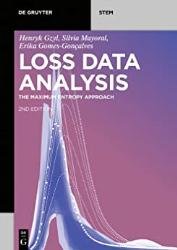- Добавил: literator
- Дата: 12-04-2023, 04:28
- Комментариев: 0
 Название: Learning Microsoft Power Automate: Improving Productivity for Business Processes and Workflows (2nd Early Release)
Название: Learning Microsoft Power Automate: Improving Productivity for Business Processes and Workflows (2nd Early Release)Автор: Paul Papanek Stork
Издательство: O’Reilly Media, Inc.
Год: 2023-04-10
Страниц: 300
Язык: английский
Формат: epub (true)
Размер: 11.2 MB
Processing information efficiently is critical to the successful operation of modern organizations. One particularly helpful tool is Microsoft Power Automate, a low-code/no-code development platform designed to help tech-savvy users create and implement workflows. This practical book explains how small business and enterprise users can use Power Automate to replace manual work that takes days with an automated process you can complete in a few hours. Welcome to this introduction on how to use Microsoft Power Automate to automate how complete tasks in your daily work life. You’re about to take your first steps on a journey that will change the way you handle information every day. But like all journeys we need to start at the beginning. That means we need to understand what Power Automate is and how it fits into the broader Microsoft ecosystem. Power Automate is a cloud-based application that can be used to create workflows.

 Название: Windows 11 Field Guide
Название: Windows 11 Field Guide Название: Windows 10 Field Guide: Includes Reference, Surface Pro 3, Surface Pro 4, and Surface Studio posters
Название: Windows 10 Field Guide: Includes Reference, Surface Pro 3, Surface Pro 4, and Surface Studio posters Название: Loss Data Analysis: The Maximum Entropy Approach, 2nd, extended edition
Название: Loss Data Analysis: The Maximum Entropy Approach, 2nd, extended edition Название: Environmental Data Analysis: Methods and Applications, 2nd Edition
Название: Environmental Data Analysis: Methods and Applications, 2nd Edition Название: Digital Twin Technologies for Healthcare 4.0
Название: Digital Twin Technologies for Healthcare 4.0 Название: Microsoft 365 Security Administration - ( MS-500 )
Название: Microsoft 365 Security Administration - ( MS-500 )
 Название: CompTIA A+ CertMike: Prepare. Practice. Pass the Test! Get Certified!: Core 1 Exam 220-1101
Название: CompTIA A+ CertMike: Prepare. Practice. Pass the Test! Get Certified!: Core 1 Exam 220-1101 Название: Data Analytics in the AWS Cloud: Building a Data Platform for BI and Predictive Analytics on AWS
Название: Data Analytics in the AWS Cloud: Building a Data Platform for BI and Predictive Analytics on AWS